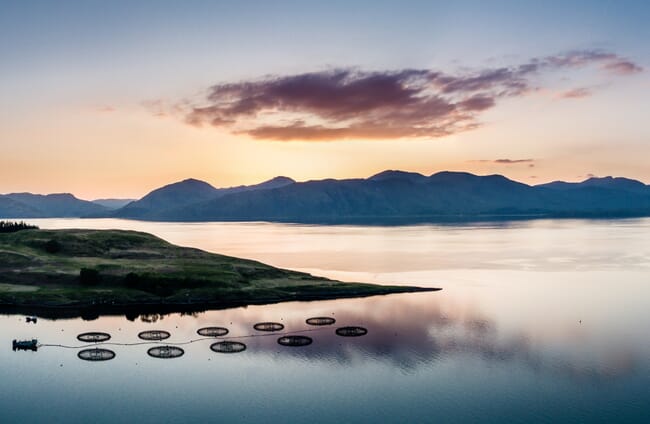Recommendations on measures to address the interactions between the farmed and wild salmon sectors have been presented to the Scottish Government today.

© SAIC
The Salmon Interactions Working Group – a collaboration between the Scottish salmon farmers, the wild fish sector and governmental bodies – has published a report that sets out more than 40 recommendations under five key themes, including the regulation and licensing of fish farms, the collection of data and the commission of further research.
The recommendations aim to improve the regulation of wild-farmed interactions; improve the relationship between the farmed and wild salmonid sectors; and support the conservation of wild salmonids via measures including investment into vital habitat restoration.
In the words of group chair, John Goodlad: “Although these recommendations cover a large number of issues, we believe they complement each other. To that extent these are presented to the Scottish Government as a package of measures which we believe should be implemented in full. If our recommendations are accepted, then I believe it will be possible to build a robust and durable framework that will minimise the impact of fish farming on wild salmonids.”
Governmental reaction
The Scottish Government will now consider the report’s findings and set out next steps in due course, including whether some of the recommendations can be taken into account as part of the development of the Wild Salmon Strategy, a programme for government commitment.
Rural Economy Secretary Fergus Ewing said: “We value the contribution the farmed and wild salmon sectors make to the Scottish economy and I congratulate John Goodlad and the wider membership of the Salmon Interactions Working Group on the publication of this report which is a pivotal step in moving forward the dialogue on the often contentious issues involved.”
Environment Secretary Roseanna Cunningham said: “The Scottish Government recognises the importance of safeguarding our iconic wild salmon while supporting the sustainable growth of the Scottish aquaculture and recreational fisheries sectors. We welcome this report which has brought both sectors together to discuss the challenges of managing farmed fish while reducing the potential impact on our wild salmon stocks and we look forward to considering these recommendations.”
Julie Hesketh-Laird, chief executive of the Scottish Salmon Producers Organisation, said: “The Scottish Government has identified 12 potential pressures to wild salmonids in Scotland that it wishes to explore, of which wild/farmed salmon interactions is just one. However, as farmers, our members have an acute appreciation of the need to maintain and protect the natural balance of the habitats in which we live and work, and as such have been keen to lend their insights and experience from day one of discussions.
“With the results of those recommendations now released, our hope is that these newly forged ties between the different stakeholders can continue, with both wild and farmed interests learning from the other. In particular, Scotland’s salmon farmers have shown their commitment to best practice by going further with transparency and data reporting than almost all international counterparts. We would now like to see the wild fish sector match our level of transparency and frequency of reporting to help us all better understand what is really happening to Scotland's wild salmon stocks.
“Equally, we look forward to governmental bodies addressing the other 11 identified pressures to wild salmon and trout in an equally thorough manner in the near future.”
Dr Alan Wells, chief executive of Fisheries Management Scotland, said: “Atlantic salmon and sea trout populations in Scotland are approaching crisis point and it is vital that Scotland’s Government and regulatory authorities do everything in their power to safeguard these species in those areas where they can make a difference. The SIWG report was agreed unanimously and both Fisheries Management Scotland and the fish farming industry have jointly committed to ensure that the recommendations are implemented in full. We therefore urge the Scottish Government to support the delivery of the recommendations as soon as practicably possible.”
